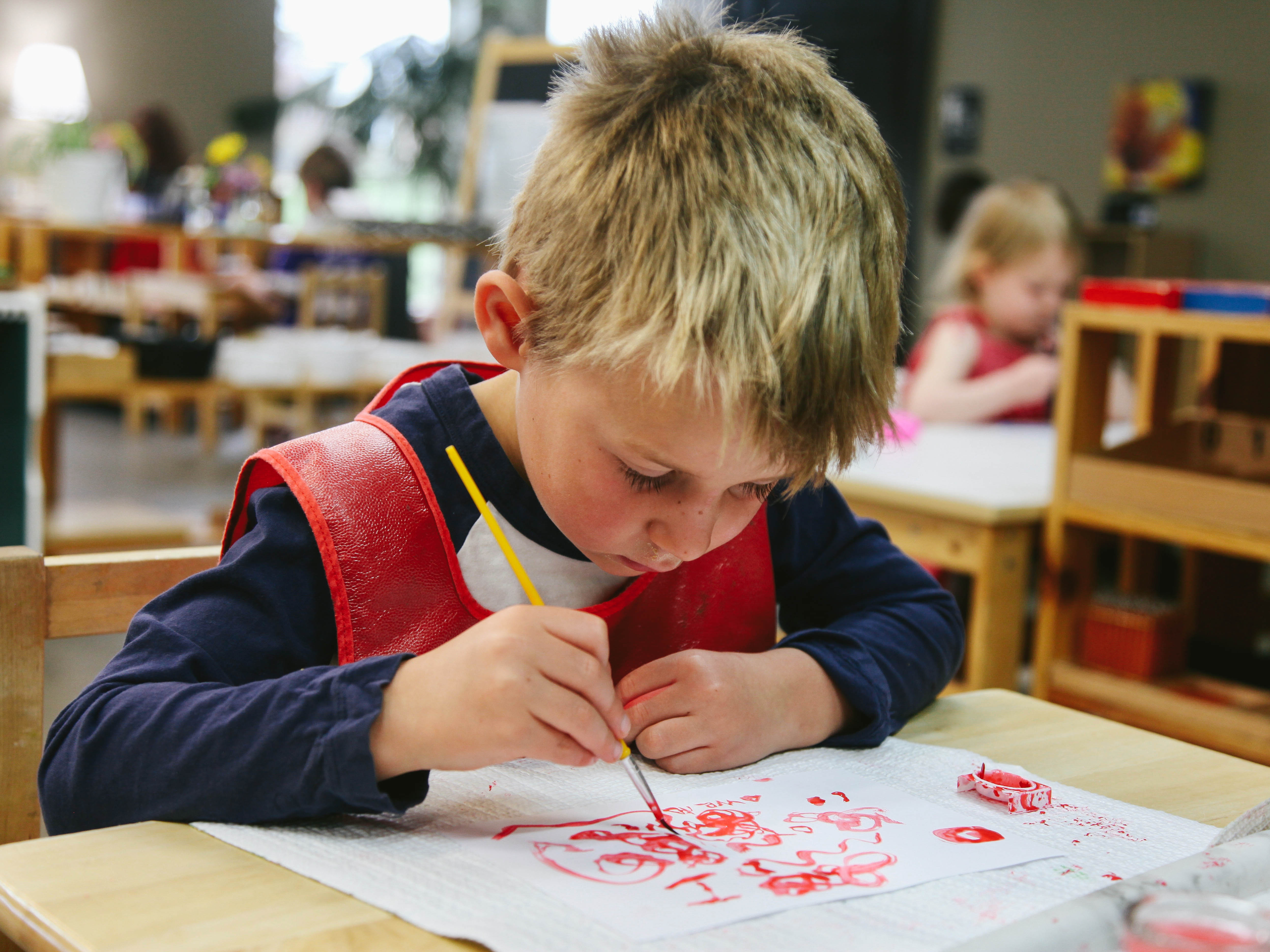
Families want to be supportive of their children’s development. We all get the same 24 hours in the day, so whether our work is unpaid as a primary caregiver or takes us outside the home for most of the day and many special occasions, between chores and school and sleep and the zillion other unnameable things that mysteriously fill our hours, our time is limited, and we want to make good use of it.
Maybe you like what you see at your child’s school and you want to bring some of that home. Maybe you like what you see at your child’s school and you’re cautious about “stepping on toes.”
The point is, what should we do at home? What can we do at home? Are we doing enough? Are we doing too much?
Families so often sell themselves short. School is not the primary space for learning; life is filled with learning. Even when children spend several years at the same school or even in the same classroom, it’s just another step along the road. Children learned things and met developmental needs before they set foot inside a classroom, and they’ll continue to learn and grow long after we’re a memory.
Specific to the Montessori classroom, so much of what families are naturally inclined to do dovetails beautifully with everyday family life. There’s plenty of pressure and “should” in other areas of life, meeting a child’s development is so often easier than we think.
Cook or bake together. Cooking and baking are ancient traditions, and some of the best recipes in the most renowned restaurants are iterations of family home cooking. It’s a way to pass on tradition, it’s a way to connect and have conversations, it’s lessons on nutrition, family culture and heritage, choices and priorities. It’s economics and math. It’s science and language.
Go to a park. Whether it’s the first beautiful day of the season, or your family goes outside together no matter the weather, going to a playground, green space, or nature walk is a wonderful time for learning. Children are constantly developing balance and gross motor control. Swings help develop body awareness and coordination, and can even be beneficial for children with sensory processing issues. Digging in the dirt could lead to a lengthy observation of ants and other creatures. A child who is tired and crabby but insists they don’t need a nap could benefit from and even enjoy a quite lie down in the grass. If parents have had a long day, it’s a lovely opportunity to pair this idea with the next one.

Allow boredom. When we’re given time to be bored, we give space to creativity. Pairing with the previous idea, when we’re at wit’s end, it’s tempting to entertain, to give into tools and strategies we might rather avoid, such as extra time with technology or a different treat, just to get a bit of time to transition ourselves from work to home, or have a cup of tea or something stronger, or enjoy our own screen time. While there’s nothing wrong with these actions, sometimes they make us feel guilty, or we think we don’t have other options. This is where boredom is helpful. Take your beverage of choice and sit outside, while a child figures out how to entertain themselves. Sit on the couch with your screen or a good book before preparing dinner (perhaps with your child?) and surreptitiously observe what happens with a blank page of paper and some crayons, or a box of blocks. It’s not our responsibility to entertain children, and when we unload that role, really amazing things can happen.
Encourage unconventional reading. Reading sure is tricky. It looks like nothing’s happening, then it’s recognizing your name and maybe a few words, and before you know it whole sentences are being read aloud. Reading doesn’t just happen in books. Along with the first suggestion, reading comes with recipes and instructions. It’s reading the manual to building a spaceship, one Lego block at a time. It’s graphic novels and picture books with no words. It’s following a map, and signs posted about the animals at the zoo or the art at the museum. For another type of reading
Enjoy music. Some of us have been singing since before we could talk, some of us can’t carry a tune in a bucket. Some of us are the first on the dance floor at a wedding, others are barely comfortable tapping toes, others only want to dance if it’s choreographed. Music is reading and expression and math and communication and history and language. It’s universal. From ancient to modern, live music on the subway platform on your way to work to a recording of Holst’s Jupiter to get you in the mood for a great day. Lessons on putting the needle on the record properly, lessons on snapping, lessons on singing arias. Something so simple and forgotten as exploring and enjoying music together, can be a deeply educational experience.
We too often forget all the deep learning, academic and other, that happens naturally during everyday life. While some of this can happen in a classroom, the opportunities to dive deep, to truly Follow the Child, really lie outside the classroom walls.